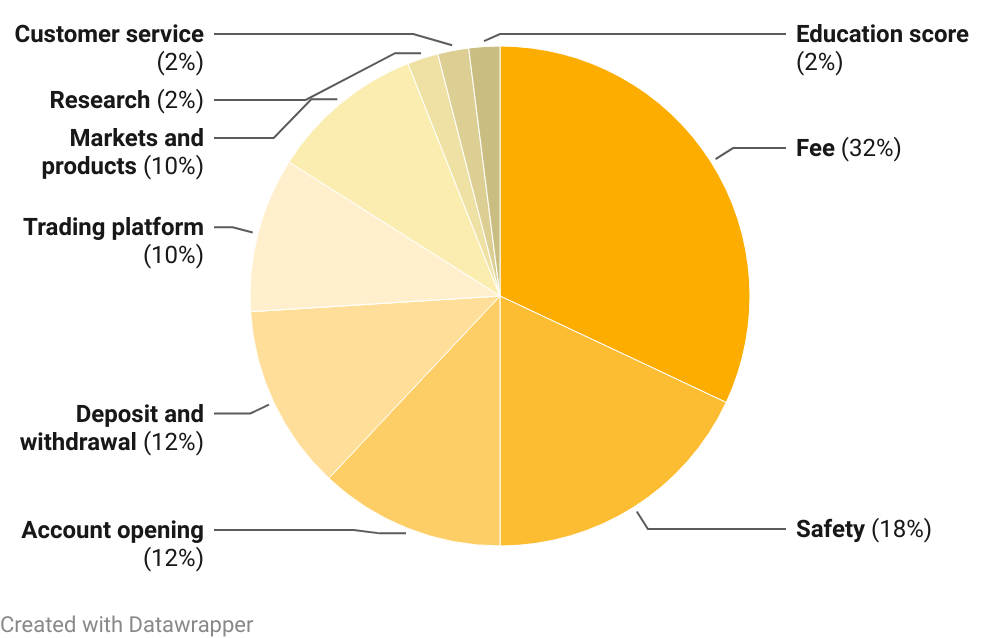Table of contents
- Table of Contents
- Understanding Cryptocurrency Trading
- Types of Cryptocurrency Trading
- Setting Up for Crypto Trading
- Basic Crypto Trading Strategies
- Advanced Crypto Trading Strategies
- Risk Management in Crypto Trading
- Technical Analysis in Crypto Trading
- Fundamental Analysis in Crypto Trading
- Psychology of Crypto Trading
- Common Mistakes to Avoid
- Staying Informed and Adapting
- Conclusion
Unlocking the World of Crypto Trading: A Comprehensive Guide
Cryptocurrency trading has taken the financial world by storm. It offers the potential for substantial profits, but it’s also a market known for its high volatility and complexity. Whether you’re a novice looking to get started or an experienced trader seeking to refine your strategy, this comprehensive guide to crypto trading will provide you with the knowledge and tools you need to navigate this exciting and dynamic market.

- What Are Cryptocurrencies?
- How Does Crypto Trading Work?
- Key Cryptocurrency Exchanges
Understanding Cryptocurrency Trading
- Spot Trading
- Futures Trading
- Margin Trading
Types of Cryptocurrency Trading
- Creating a Crypto Wallet
- Choosing a Cryptocurrency Exchange
- Security Measures
Setting Up for Crypto Trading
- HODLing
- Day Trading
- Swing Trading
Basic Crypto Trading Strategies
- Scalping
- Arbitrage
- Algorithmic Trading
Advanced Crypto Trading Strategies
- Position Sizing
- Stop-Loss and Take-Profit Orders
- Managing Emotions
Risk Management in Crypto Trading
- Candlestick Patterns
- Support and Resistance
- Indicators and Oscillators
Technical Analysis in Crypto Trading
- Evaluating Projects and Teams
- News and Events
- Regulatory Considerations
Fundamental Analysis in Crypto Trading
- Overcoming Fear and Greed
- Staying Disciplined
- Learning from Losses
Psychology of Crypto Trading
- Neglecting Security
- Chasing Hype
- Ignoring Diversification
Common Mistakes to Avoid
- Market Research and News
- Adapting to Market Conditions
- Continuous Learning
Staying Informed and Adapting
Conclusion
How would we feature you?

Understanding Cryptocurrency Trading
What Are Cryptocurrencies?
Cryptocurrencies are digital or virtual currencies that use cryptography for security. They operate on decentralized blockchain technology and have gained popularity as a medium of exchange and investment.
How Does Crypto Trading Work?
Crypto trading involves buying and selling cryptocurrencies on various exchanges. Traders aim to profit from price fluctuations by predicting whether the price of a cryptocurrency will rise or fall.
Key Cryptocurrency Exchanges
There are numerous cryptocurrency exchanges, each with its own features and offerings. Prominent exchanges include Binance, Coinbase, Kraken, and Bitfinex.
Types of Cryptocurrency Trading
-
01
Spot Trading
Spot trading involves buying or selling actual cryptocurrencies for immediate delivery. It’s the simplest form of crypto trading and is ideal for beginners.
-
02
Futures Trading
Futures trading allows traders to speculate on the future price of cryptocurrencies without owning the underlying assets. It offers leverage but carries higher risk.
-
03
Margin Trading
Margin trading involves borrowing funds to trade larger positions than your account balance. It amplifies both gains and losses and should be approached with caution.

Setting Up for Crypto Trading
Creating a Crypto Wallet
A cryptocurrency wallet is essential for storing your digital assets securely. Choose between hardware wallets, software wallets, and online wallets, depending on your needs.
Choosing a Cryptocurrency Exchange
Select a reputable exchange with a user-friendly interface, strong security measures, and a wide range of supported cryptocurrencies.
Security Measures
Implement robust security practices, including two-factor authentication (2FA), strong passwords, and cold storage for your assets.
Weight Of Areas In The Methodology

Basic Crypto Trading Strategies
HODLing
HODLing involves holding onto cryptocurrencies for the long term, based on the belief in their future potential.
Day Trading
Day traders buy and sell cryptocurrencies within the same day, capitalizing on short-term price fluctuations.
Swing Trading
Swing traders aim to capture price swings within an established trend, holding positions for several days or weeks.
Advanced Crypto Trading Strategies
Scalping
Scalpers make rapid, small trades to profit from tiny price movements. It requires quick decision-making and execution.
Arbitrage
Arbitrage involves exploiting price differences for the same cryptocurrency on different exchanges, profiting from the price gap.
Algorithmic Trading
Algorithmic trading uses automated trading algorithms to execute orders based on predefined criteria, such as technical indicators or news events.
Risk Management in Crypto Trading
-
01
Position Sizing
Determine the size of your trades based on your risk tolerance and account size. Never risk more than you can afford to lose.
-
02
Stop-Loss and Take-Profit Orders
Use stop-loss orders to limit potential losses and take-profit orders to secure profits at predefined levels.
-
03
Managing Emotions
Emotions like fear and greed can cloud judgment. Maintain emotional discipline by adhering to your trading plan.

Technical Analysis in Crypto Trading
Candlestick Patterns
Candlestick charts provide insights into price trends and reversals, helping traders make informed decisions.
Support and Resistance
Identifying support and resistance levels can assist in predicting price movements and potential entry/exit points.
Indicators and Oscillators
Technical indicators like Moving Averages, RSI, and MACD offer valuable signals for trading decisions.
Fundamental Analysis in Crypto Trading
Evaluating Projects and Teams
Research the fundamentals of cryptocurrencies, including their technology, use case, team, and partnerships.
News and Events
Stay informed about news and events that can impact cryptocurrency prices, such as regulatory developments and major partnerships.
Regulatory Considerations
Understand the regulatory landscape in your jurisdiction to ensure compliance.
Psychology of Crypto Trading
Overcoming Fear and Greed
Managing emotions is essential. Fear can lead to missed opportunities, while greed can result in excessive risk-taking.
Staying Disciplined
Stick to your trading plan, even during turbulent market conditions or tempting opportunities.
Learning from Losses
Losses are part of trading. Use them as opportunities to learn and improve your strategy.
Common Mistakes to Avoid
Neglecting Security
Prioritize security to protect your assets from theft or hacking.
Chasing Hype
Avoid investing in cryptocurrencies solely based on hype or speculative trends.
Ignoring Diversification
Diversify your crypto portfolio to reduce risk.
Staying Informed and Adapting
Market Research and News
Stay updated on market trends, news, and developments that can impact cryptocurrency prices.
Adapting to Market Conditions
Be flexible and adapt your trading strategy to changing market conditions.
Continuous Learning
The crypto market is constantly evolving. Commit to continuous learning and improvement.

Conclusion
Cryptocurrency trading offers exciting opportunities for profit, but it’s essential to approach it with knowledge and caution. With a solid understanding of the fundamentals, robust security measures, effective risk management, and emotional discipline, you can navigate the world of crypto trading confidently. Remember that crypto markets are highly volatile, so always be prepared for the unexpected. Happy trading!
